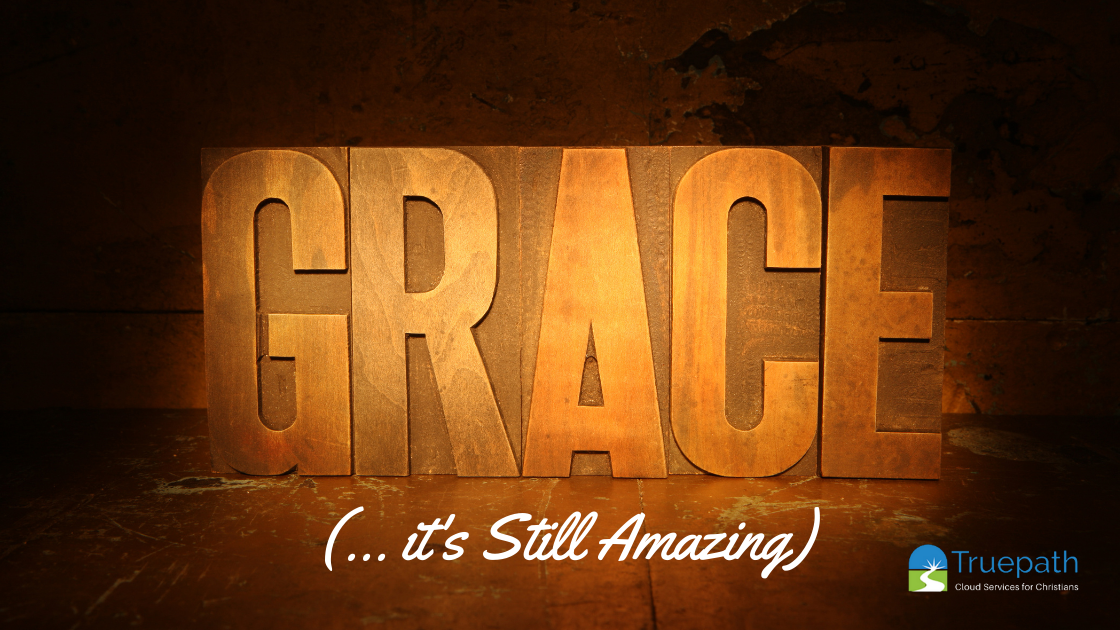It’s amazing what you’ll find at the local Goodwill store…
I had just popped in for a quick look the other day, and found myself (as usual) at the wall of used books. One title immediately jumped out at me: “What’s so Amazing About Grace?” by Philip Yancey.
Since I’d always appreciated quotes from his works and never read this one (even though the book first came out in ‘97), I happily plopped down a buck and took it home.
Allow me to say that the book is outstanding — and I’m hard to please when it comes to such things. So many are poorly written or dry-as-dust, and end up detracting from the one grand story of history.
Full of great stories (Yancey chooses to “show” rather than tell — as good writers will), the book makes for captivating reading. I’ll even go out on a limb and suggest that it should be mandatory reading for ministries and churches — especially those who struggle with being “grace-less” in their preoccupation with culture wars.
You don’t have to look far for those, as this recent tweet suggested: “Getting Christians to set aside such weaponized language (words like “Woke,” “Cultural Marxism,” etc.) is almost as difficult as getting nations to give up nuclear weapons.”
I mention this too because the book led me to another tasty vignette by Yancey — which not only seemed timely for the current crisis in Ukraine but also reminds us just how radical the grace of God really is :
“When the world sees grace in action, it falls silent.”
“Nelson Mandela taught the world a lesson in grace when, after emerging from prison after twenty-seven years and being elected president of South Africa, he asked his jailer to join him on the inauguration platform. He then appointed Archbishop Desmond Tutu to head an official government panel with a daunting name, the Truth and Reconciliation Commission.
Mandela sought to defuse the natural pattern of revenge that he had seen in so many countries where one oppressed race or tribe took control from another…
At one TRC hearing, a policeman named van de Broek recounted an incident when he and other officers shot an eighteen-year-old boy and burned the body. Eight years later van de Broek returned to the same house and seized the boy’s father. The wife was forced to watch as policemen bound her husband on a woodpile, poured gasoline over his body, and ignited it.
The courtroom grew hushed as the elderly woman who had lost her first son and then her husband was given a chance to respond. “What do you want from Mr. van de Broek?” the judge asked. She said she wanted van de Brock to go to the place where they burned her husband’s body and gather up the dust so she could give him a decent burial. His head down, the policeman nodded agreement.
Then she added a further request, “Mr. van de Broek took all my family away from me, and I still have a lot of love to give. Twice a month, I would like for him to come to the ghetto and spend a day with me so I can be a mother to him. And I would like Mr. van de Broek to know that he is forgiven by God and that I forgive him too. I would like to embrace him so he can know my forgiveness is real.”
Spontaneously, some in the courtroom began singing “Amazing Grace” as the elderly woman made her way to the witness stand, but van de Broek did not hear the hymn. He had fainted, overwhelmed.
Justice was not done in South Africa that day, nor in the entire country during months of agonizing procedures by the TRC. Something beyond justice took place. “Do not be overcome by evil, but overcome evil with good,” said Paul.
Nelson Mandela and Desmond Tutu understood that when evil is done, one response alone can overcome the evil. Revenge perpetuates the evil. Justice punishes it. Evil is overcome by good only if the injured party absorbs it, refusing to allow it to go any further. And that is the pattern of otherworldly grace that Jesus showed in his life and death.” – Philip Yancey
Amen!


